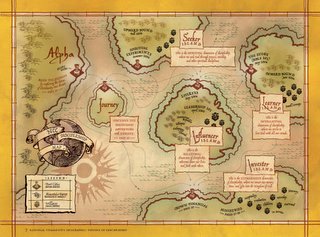FAQ: What's the deal with non-linear discipleship?
We have 2 basic goals at NCC: plug into a small group and plug into a ministry. We had over 75 groups during the Fall 2006 semester that allowed NCCers opportunities to get plugged into disciple-making relationships. Our small groups are great for helping people take the next step in their faith.
But last year, we began to talk about the need for a discipleship map of some sort. We felt like we needed to give people a little more guidance than just "get involved in a small group." A brand new believer in Christ doesn't necessarily need to be in a year-long inductive study on the book of Romans. And someone who has been following Christ for 30 years may not be challenged the most by reading Purpose Driven Life.
I had to answer 2 questions:- What do NCCers need to know and do?
- What environments, processes and programs do we need to create to facilitate that learning and growing process?
I went into this process with 2 basic parameters. Number one, I did not want to develop a linear approach to discipleship. A lot of churches have discipleship strategies that are built on linear systems. You go to a Christianity 101 class. Then Discipleship 201. Then Leadership 301. I didn’t want a linear system like that because we don't feel that’s how most people grow. Most people do not grow in a systematic, linear way; rather, they learn what they need to learn when God connects them with the right people at the right time in the right place in the right circumstances. On a related note, I did not want to intentionally or unintentionally suggest that there was an “ending point.” All linear systems have some sort of endpoint, whether it is stated or not. And I did not want to indicate in any way that there was any sort of endpoint.
The second criteria is that I did not want a one-size-fits-all system. A lot of church discipleship programs that I participated in try to cram everyone into one type of system. I was told that I would grow if I did (fill in your own blank here). But I didn't always grow in those environments. Everyone is different. Some people grow best in one-on-one discipleship mentor relationships. Others grow best in community with a larger group. One way people grow is through experiences. A worship experience or a missions trip or a service project or a retreat may be a more powerful discipleship experience for some people. Personally, I like academic lecture/lab style discipleship. Give me a textbook and an assignment and I start growing—it’s not just an intellectual activity, it is discipleship for me. But the academic style is not the best discipleship environment for others. So I wanted to prayerfully develop a strategy that was built on a variety of discipleship methods. Our "free-market" approach to small groups already facilitated a wide variety of groups.


 Sacred Roads: Exploring the Historic Paths of Discipleship
Sacred Roads: Exploring the Historic Paths of Discipleship
